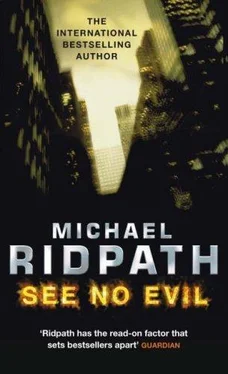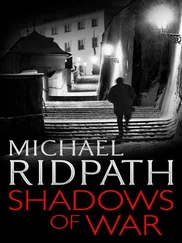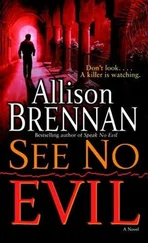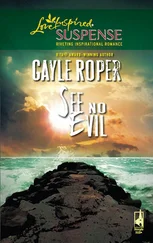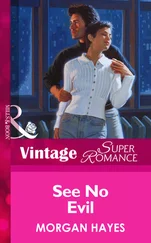‘The Laagerbond,’ Calder repeated. ‘Are you a member of the Laagerbond?’
Havenga recovered, lowering his coffee and pursing his lips. ‘Laagerbond? Interesting name. I can’t say that I have heard of it, though.’
‘What about Operation Drommedaris?’
Havenga slowly shook his head, his lips tightly shut.
‘No, of course not,’ Calder said. ‘Thanks for your time, professor. I think I’ve found what I was looking for.’
Havenga put down his mug and leaped to his feet. ‘I don’t see how. I had no idea what you were talking about.’
Calder smiled at the professor. ‘Oh, you were very helpful. Believe me, very helpful.’
Daniel Havenga was severely agitated after Calder left. He paced about the tiny living room, playing over the conversation in his head. He hadn’t made any slips, had he? Alex Calder had seemed to think he had. He was shocked at how much that man had been able to piece together. Martha’s death had devastated him at the time, and even now, eighteen years later, his eyes prickled at the thought of it. The irony was that neither he nor Andries Visser nor the Laagerbond had been responsible. He wished he could just tell Calder that but he couldn’t. There was too much else at stake.
He picked up the phone and dialled a number. ‘Andries? It’s Daniel. I’m worried...’
As soon as Calder arrived back in Cape Town he booked a flight for that evening to Johannesburg. It was obvious that Havenga had been lying about his meeting with Visser and Cornelius and that he knew very well what the Laagerbond was. Calder decided to track down Andries Visser at the address George Field had given him: a farm near Pretoria.
Before leaving for the airport he called Kim. She had decided to speak to Todd, who had been shocked at the idea that Cornelius might have been financed by the Laagerbond. In fact, he hadn’t believed it, and he wanted to confront his father about it. This seemed a very bad idea to Calder and he urged Kim to try to stop him. Kim promised she would do her best.
Todd’s proposed action annoyed Calder. While at the outset it had been reasonable that Todd and Kim called the shots, now Calder felt he had just as much right to decide how they approached Cornelius. His sister had lost a leg, and he was risking his neck in South Africa. It seemed to him to be a clear mistake to show their hand now. But there was little he could do about it at this distance.
His flight arrived at Johannesburg at about eight o’clock. He hired a car and drove on to Pretoria, where he checked into a hotel in Arcadia, the diplomatic quarter. The next morning he headed out on to the high veld in search of Visser’s farm.
Where Cape Town had been green and mountainous, the veld was yellow and flat, or at best gently undulating. For miles on all sides stretched grassland dotted with heavily guarded farms, patches of succulent green in the parched landscape. They needed rain.
Visser’s farm was set back from a small straight road that led from one tiny dorp to another. It seemed to be bigger than most of its neighbours, the farmhouse itself was substantial, as was the cattle shed next to it. There was a perimeter fence along the road, and then an inner barrier of twelve-foot-high floodlit barbed wire. The metal plates on the gate threatened armed response, dogs and electrocution. Calder almost expected to see a sign telling him to beware of the minefield.
He opened the gate and drove along the track towards the farm. After Professor Havenga he had felt quite confident about meeting a retired civil servant, but this wasn’t the quaint rustic farmstead he had expected. It looked more like a military camp. He almost turned back, but he had come this far and he didn’t want to waste the trip. Besides, he planned a more subtle approach with Visser, less confrontational, more indirect.
He approached the inner gate to the farm to be met by two Dobermanns barking their heads off. No way was he going to open that gate, so he hooted the hired car’s horn.
He waited a minute and then the door to the farmhouse opened, followed by the iron security gate. A thin man emerged. He tried to shout at the dogs, but his voice was hoarse and weak. Despite that, the dogs seemed to hear and slunk towards him. He shut them into a shed next to the house and limped over to the gate to open it.
Calder leaned out of the window of his car. ‘Mr Visser? My name’s Alex Calder—’
‘I know who you are,’ wheezed Visser. ‘Come in.’
Calder parked his car and followed the man inside. ‘A lot of security you have here,’ he said.
‘We need it. We lose several cattle every year. We have to protect them ourselves, we can’t rely on anyone else.’
‘I see,’ said Calder.
Visser led him into what was clearly a study of the practical sort, cluttered with books, ledgers, box files and computer equipment. He coughed, a rasping affair that shook his whole body.
‘Sit down,’ he said, indicating a sofa. As Calder lowered himself into it, Visser moved to the corner behind his desk. There Calder noticed a rifle. He leaped to his feet, but Visser had already picked up the gun and was pointing it at him.
‘Keep still!’ he wheezed.
‘OK, OK,’ Calder said, raising his hands in a placatory gesture.
‘Hands by your sides!’
Calder let his arms drop.
‘You should know, Mr Calder, that I am very different from my friend Professor Havenga. Not as friendly. In fact I object to the way you questioned him.’
Calder swallowed. ‘I see.’
‘This isn’t Britain,’ Visser said.
‘I know.’
‘You see, I can shoot you right now. This is my land, my farm, and you are an intruder. I know the local police chief. He might ask a difficult question or two, but he wouldn’t argue with my story. My family and his have known each other for generations.’
Calder remained silent.
‘You ask too many questions. Turn around.’
Calder remained still.
‘I said turn around!’ Visser raised his voice, but that brought on a fit of coughing. Calder stared down the barrel of the rifle and then did as he was asked. He faced a blank wall.
‘This isn’t the Wild West, either,’ Visser continued. ‘Here it’s OK to shoot an intruder in the back. In fact it’s more credible. And I’m going to shoot you on the count of three. Are you ready?’
Calder swallowed again. Jesus! What was this? So much for the subtle approach. Was he going to be shot dead just like that? Visser was bluffing, surely...’
‘One.’
Maybe he was, maybe he wasn’t. But Visser was too far away for Calder to jump him; the second Calder moved he would be dead. Perhaps he could talk him out of it. ‘Andries...’
‘Quiet! Two.’
This was it. Calder closed his eyes. He thought of his father. And from somewhere he thought of Sandy. Odd.
‘Three!’ There was a sharp crack, the feeling of wind on his cheek and then the plaster on the wall next to him exploded, fragments tearing into his face. He flinched as his ears and chin burned. He touched his face. Blood from the plaster.
He turned to see Visser holding the rifle to his shoulder. ‘On second thoughts there would be some tiresome interviews to deal with,’ Visser said. ‘But remember, this is my country, not yours. I can have you killed here easily any time I like. And I will do that unless you take a plane out of South Africa tonight. My people will be watching you. Now go.’
Calder hesitated.
‘Go!’ wheezed Visser. Calder left the room and walked stiffly out to his car. His knees were weak and he had a strong urge to run, but he didn’t want to give Visser the pleasure. He slowly climbed in, and drove off down the track. As he reached the small country road, a blue Toyota Corolla appeared behind him. There was a white man inside with a thick neck and a baseball cap. Calder made no attempt to evade the car as it followed him all the way to Pretoria.
Читать дальше
